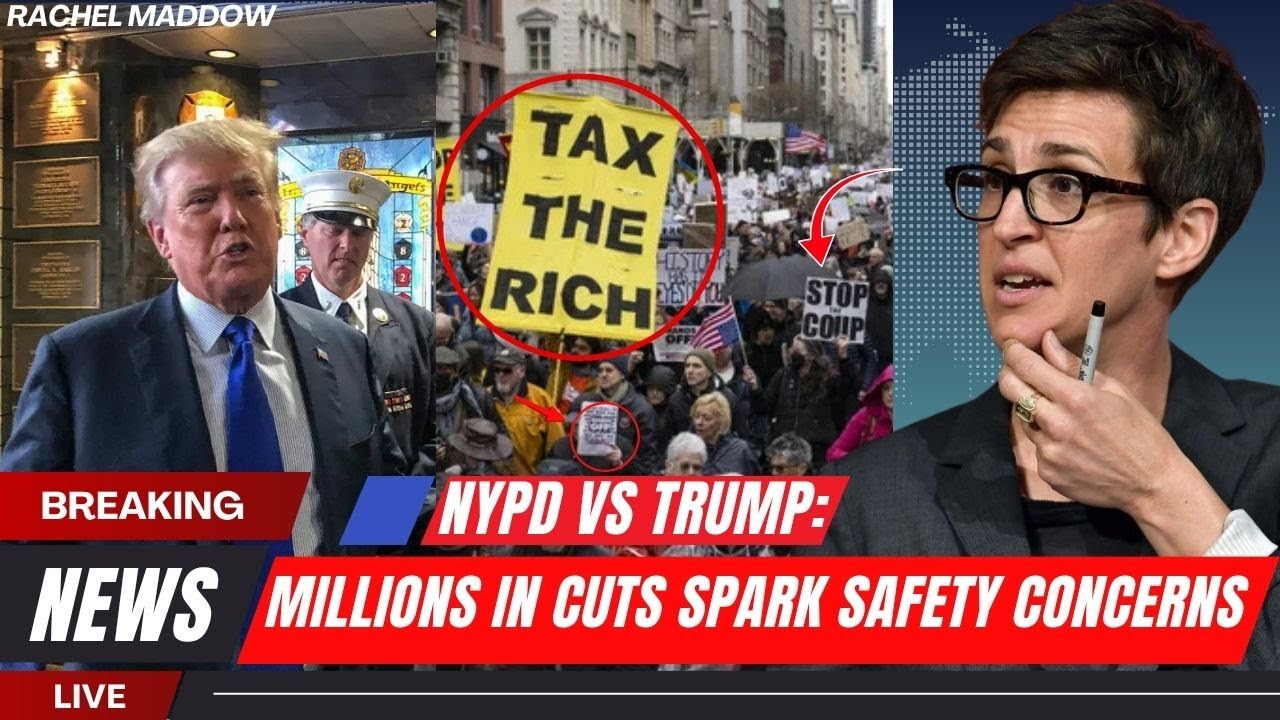NYPD Budget Cuts: A Controversial Clash With National Implications
New York City — The New York Police Department (NYPD) is facing millions in funding cuts, sparking heated debate over public safety and political priorities. Critics warn that reduced resources could compromise crime prevention, emergency response, and overall community security, while supporters of the cuts argue that reforms are necessary to redistribute funds toward social programs and community initiatives.
The controversy intensified when former President Donald Trump publicly criticized the cuts, framing them as a threat to law and order in one of America’s largest cities. MSNBC host Rachel Maddow highlighted the issue in a recent segment, emphasizing the potential consequences for both the NYPD and citizens who rely on robust policing.
What the Cuts Mean for the NYPD
The NYPD, already managing a complex urban landscape, could face:
-
Fewer patrol officers on the streets, potentially delaying response times.
-
Reduced investigative capacity, impacting homicide, robbery, and fraud cases.
-
Cutbacks in specialized units, such as counterterrorism and cybercrime teams.
-
Strain on community programs, including youth engagement and public safety education.
Police unions have voiced strong opposition, warning that “budget cuts now mean higher risks later,” and calling for immediate policy revisions to ensure public safety is not compromised.
Trump Weighs In
Donald Trump framed the cuts as a political attack on law enforcement, emphasizing the importance of maintaining strong police presence in major cities. Supporters echoed his concerns, suggesting that reductions in policing could embolden criminal activity and undermine citizen confidence in safety measures.
Meanwhile, city officials defend the decision as part of broader efforts to balance the budget and allocate resources toward social services, arguing that investments in community programs can prevent crime at its roots and complement traditional policing methods.
Public Reaction and Safety Concerns
The debate has sparked a nationwide conversation on law enforcement, budget allocation, and public safety priorities. Residents of New York City and other major urban centers have expressed mixed reactions:
-
Supporters of funding cuts hope to see resources redirected toward mental health, housing, and youth initiatives.
-
Critics fear an increase in crime, longer emergency response times, and diminished trust in law enforcement.
Experts warn that cutting millions from the police budget without a clear plan for alternative safety measures could leave cities vulnerable, particularly in high-crime neighborhoods or during emergencies.
Maddow Highlights National Implications
In her MSNBC coverage, Rachel Maddow emphasized that the NYPD funding debate is not just a local issue — it reflects broader national tensions over policing, political influence, and urban safety. The segment explored how budgetary decisions today could affect crime rates, police morale, and community trust for years to come.
Maddow also questioned the framing of safety as a partisan issue, highlighting that effective public security requires collaboration, funding, and strategic planning beyond political rhetoric.
The Road Ahead
The NYPD budget cuts are likely to remain a contentious topic as city officials, law enforcement leaders, and political figures continue to debate priorities. Residents, advocacy groups, and public safety experts will be watching closely to assess the impact of these changes on crime, emergency response, and community well-being.
Whether viewed as necessary reform or a dangerous reduction in policing, the controversy underscores a national conversation about balancing budgets, protecting citizens, and maintaining effective law enforcement in America’s largest cities.

